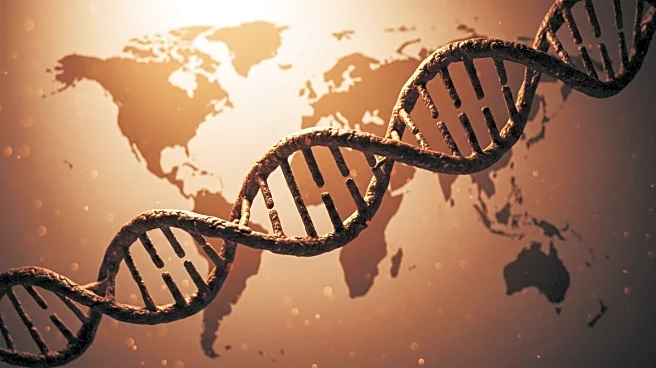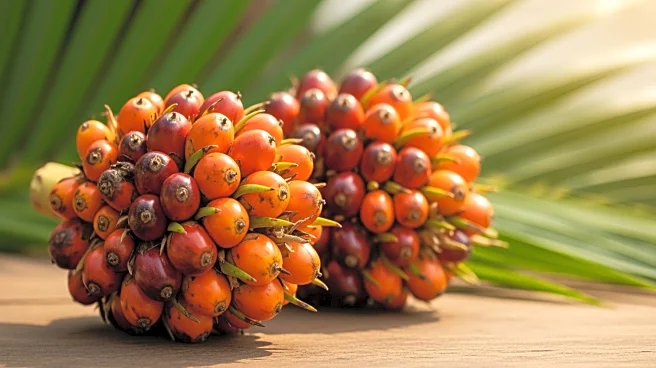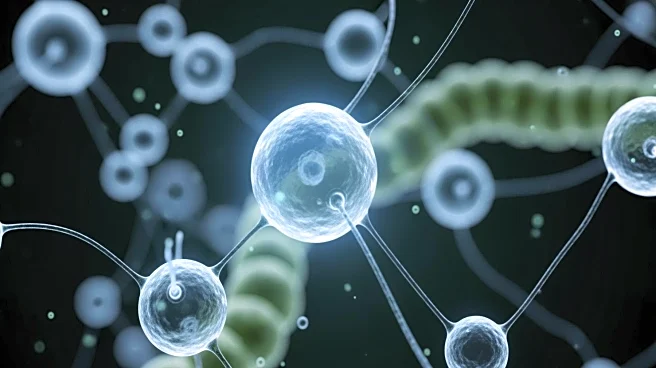What is the story about?
What's Happening?
A genetic variant inherited from the Denisovans may have played a crucial role in helping Homo sapiens survive in the Americas. Researchers found that this Denisovan gene, associated with mucus production, appears at high frequencies in ancient Indigenous American genomes. The study, conducted by Brown University and published in Science, suggests that interbreeding with Denisovans introduced genetic variations that were beneficial for adapting to new environments. The gene's expansion in the MUC19 region of the genome may have enhanced mucus stickiness, aiding survival and reproduction in diverse climates.
Why It's Important?
The discovery underscores the complex nature of human evolution, highlighting the impact of interbreeding with extinct human species on modern genetic diversity. The Denisovan gene variant's role in mucus production suggests it may have provided adaptive advantages in the Americas, potentially influencing interactions with local microbes. This research contributes to the understanding of how ancient genetic exchanges shaped human adaptation and survival, offering insights into the evolutionary history of Indigenous American populations. It may also inform studies on genetic resilience and health in contemporary populations.
Beyond the Headlines
The study raises questions about the broader implications of ancient genetic introgression on human health and adaptation. Understanding the functional role of the Denisovan gene variant could lead to discoveries about its impact on immune responses and disease resistance. The research may prompt further investigation into the genetic legacy of extinct human species and their contributions to modern human diversity. Ethical considerations regarding the study of ancient DNA and its application to contemporary health issues may also emerge.
















